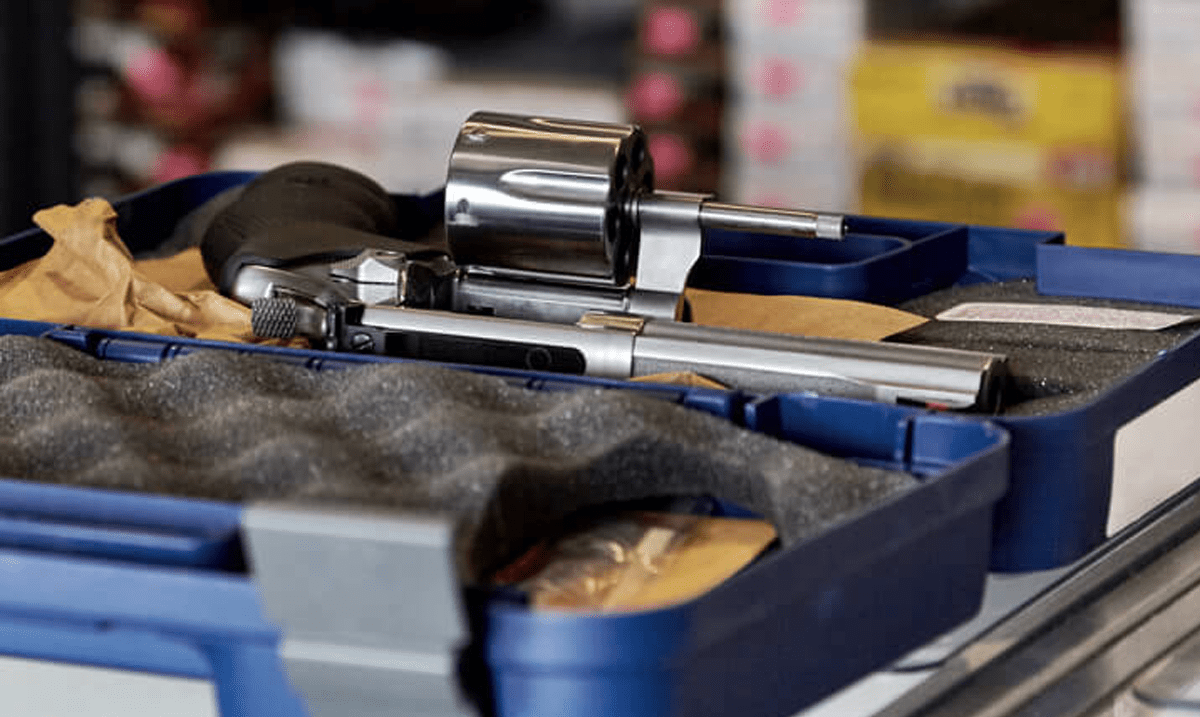 Back to News
Back to News
July 1, 2025
Firearm Industry Celebrates Nation’s Birth, Courtesy of Armed Citizens
The founding of the United States of America was – and is – an audacious idea. A far-flung group of Americans had a big idea. They didn’t need a king. They could – and would – govern themselves based on self-evident truths, “that all men are created equal, that they are endowed by their Creator with certain unalienable Rights, that among these are Life, Liberty and the pursuit of Happiness.”
Among those rights is the right to keep and bear arms. That right is no more and no less important than the rights to free speech, peaceful assembly, free exercise of religion and more. That right to keep and bear arms, later expressly protected in the Bill of Rights, would be vital as the nation shook off a tyrannical monarch.
American Firepower
It was the armed citizen that stood against the British army and navy and without their guns, the idea of the United States might have just been that – an idea. Armed citizens took up their own arms in the Battles of Lexington and Concord, Bunker Hill, Saratoga and Yorktown, along with dozens of battles in between. Even the Continental Army relied on armed citizens to bring their own rifles to the battlefield.
Early recruiting efforts specifically called for recruits to bring their own arms. In Massachusetts, those who signed an enlistment were expected that “each of Us do engage to furnish and carry with us into the Service, a good effect Fire-Arm, and also a Bayonet (if to be obtained) Cartridge-Box and Knap-Sack; and if no Bayonet, in Lieu thereof, a Sword, Hatchet or Tomahawk.”
The American Revolution Institute reports, “At the beginning of the Revolution, the army relied on soldiers to bring weapons from home, including hunting guns, militia arms and outdated martial weapons from the French and Indian War. American soldiers also carried weapons captured from the enemy in the field and reissued to Continental and state troops.”
Most soldiers in the Continental Army carried various firearms but most common were smoothbore, flintlock muskets. Most common for American troops were the British Brown Bess or French Charleville muskets.
Early Arms
Firearm production in the fledgling United States was in its infancy. There were some small-scale manufacturers in the early United States. Virginia founded the State Gun Factory in Fredericksburg in 1775 and “operated throughout the war, repairing and manufacturing muskets, bayonets and small quantities of gunpowder for Virginia troops.”
Among those American arms, however, were those produced by American gunsmiths, particularly those made by German and Swiss immigrants in Pennsylvania that became known as the Kentucky rifle, the Tennessee rifle and the Pennsylvania rifle. It was, quintessentially, the American long rifle.
Gen. George Washington, the Commander of the Continental Army, himself was known to have accumulated many personal firearms – including sporting rifles, hunting fowlers and flintlock pistols. American Rifleman reports that at his death, he had “approximately 19 pistols, three rifles, four muskets and nine fowling pieces.” During the American Revolution, Washington was armed with a Braddock pistol, gifted to him by Gen. Edward Braddock, and a pair of English pistols, gifted to him by Thomas Turner through Capt. Henry Fauntleroy. Gen. Washington also received a pair of pistols presented by the Marquis de Lafayette during the American Revolution.
Large-scale firearm production wouldn’t come for years, when President Washington established the first two national armories in the United States: Springfield Armory in Massachusetts and the Harpers Ferry Armory in what is now West Virginia.
American independence, and arguably the unique American character, has been shaped by the right to keep and bear arms. The ability for free men and women to decide their fate, protect their family, provide food for their table and defend freedom has been borne from this liberty. The Declaration of Independence established that America would be its own nation, free from rule by a tyrannical king. The armed citizen gave the decisive firepower to allow the United States to grow into the nation we enjoy today.
You may also be in interested in:
Rhode Island Sends MSR Ban to Governor Despite Recent SCOTUS Warnings
Categories: BP Item, Education, Government Relations, Top Stories









